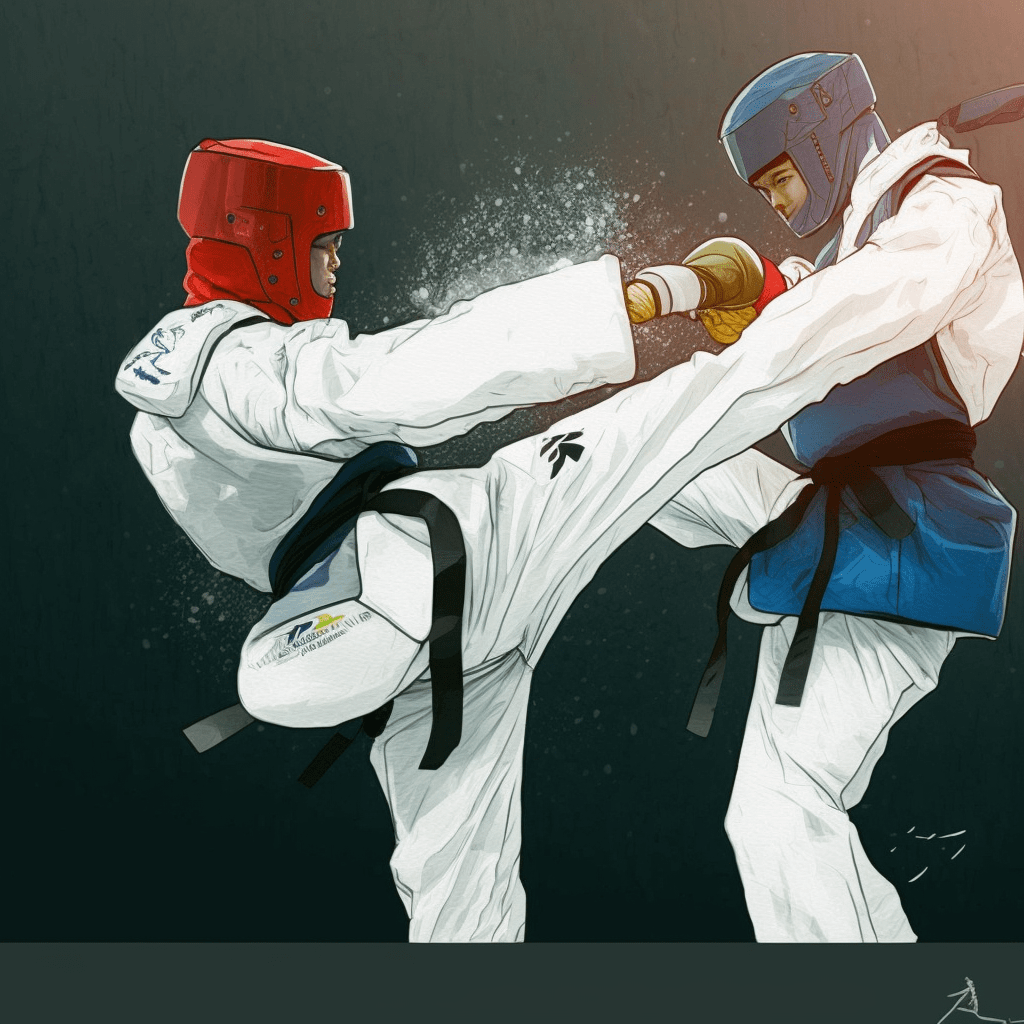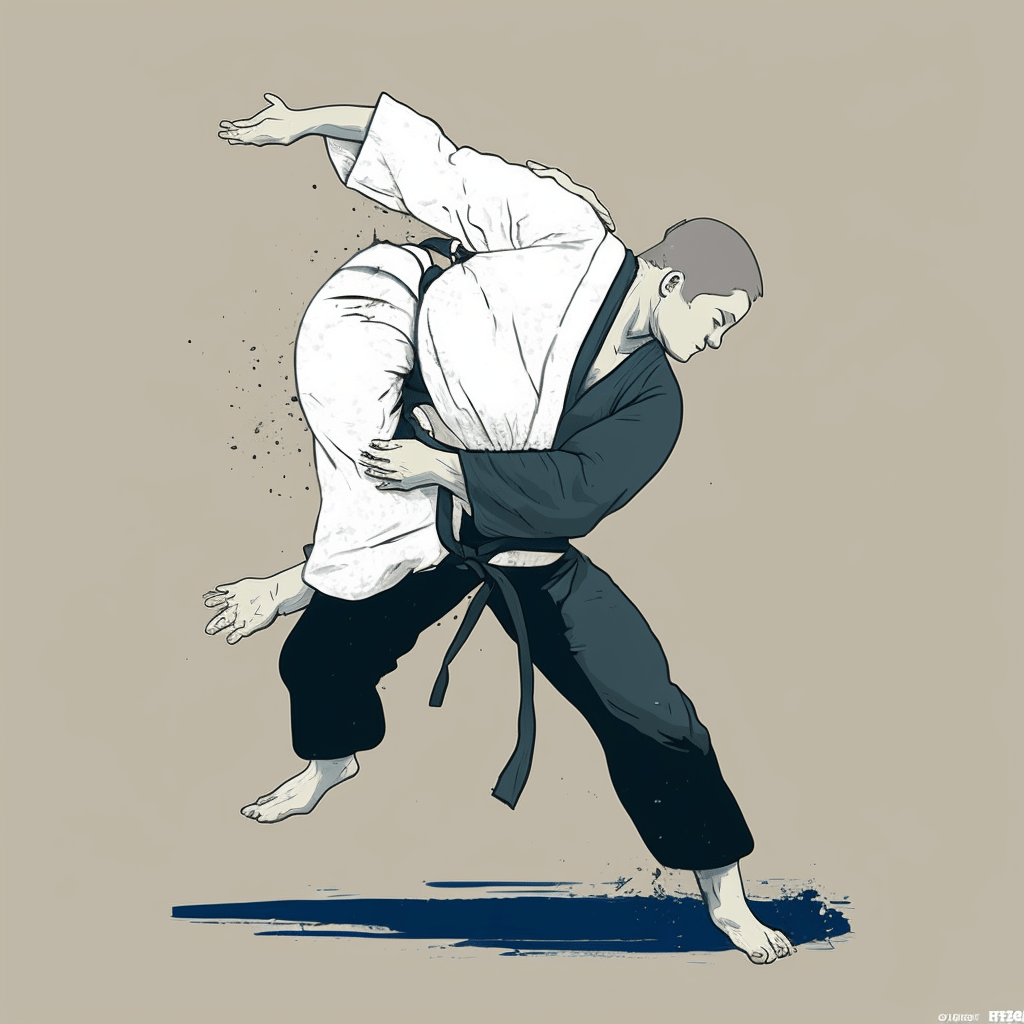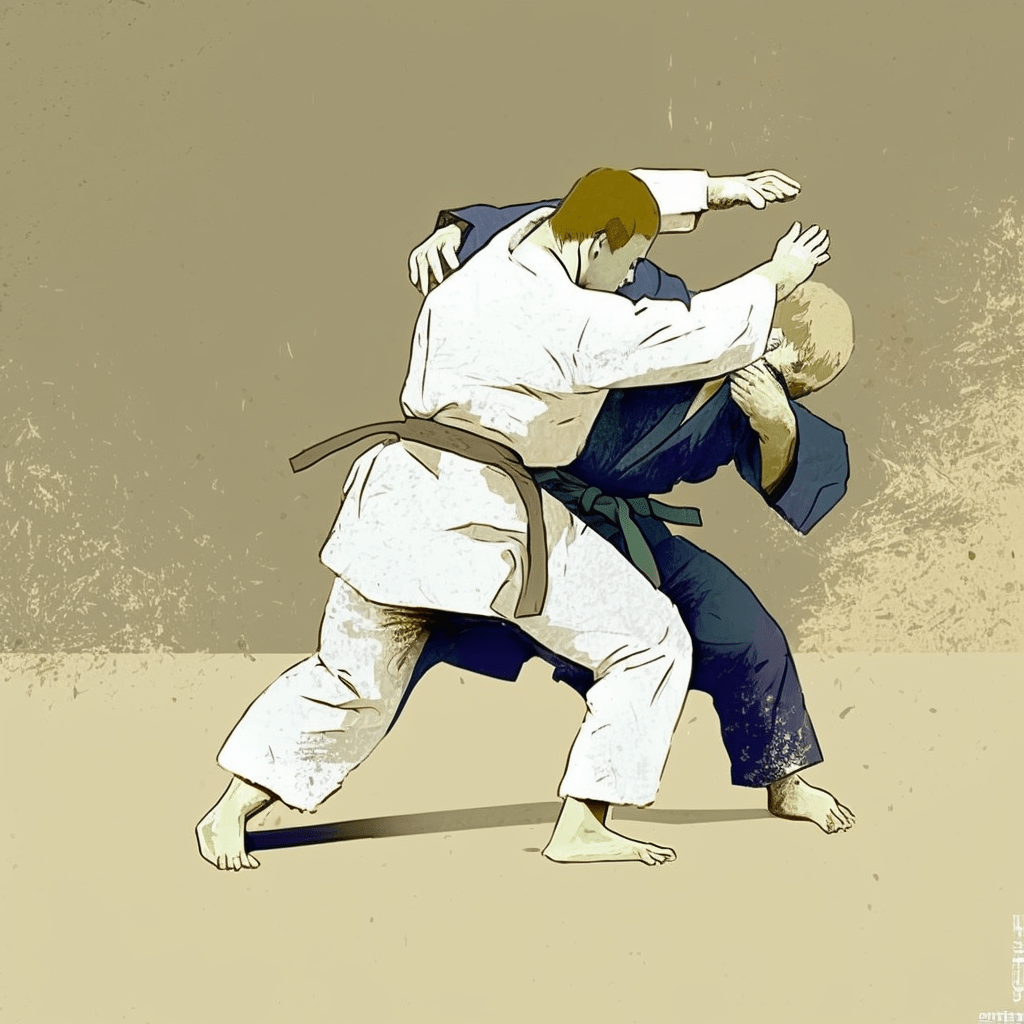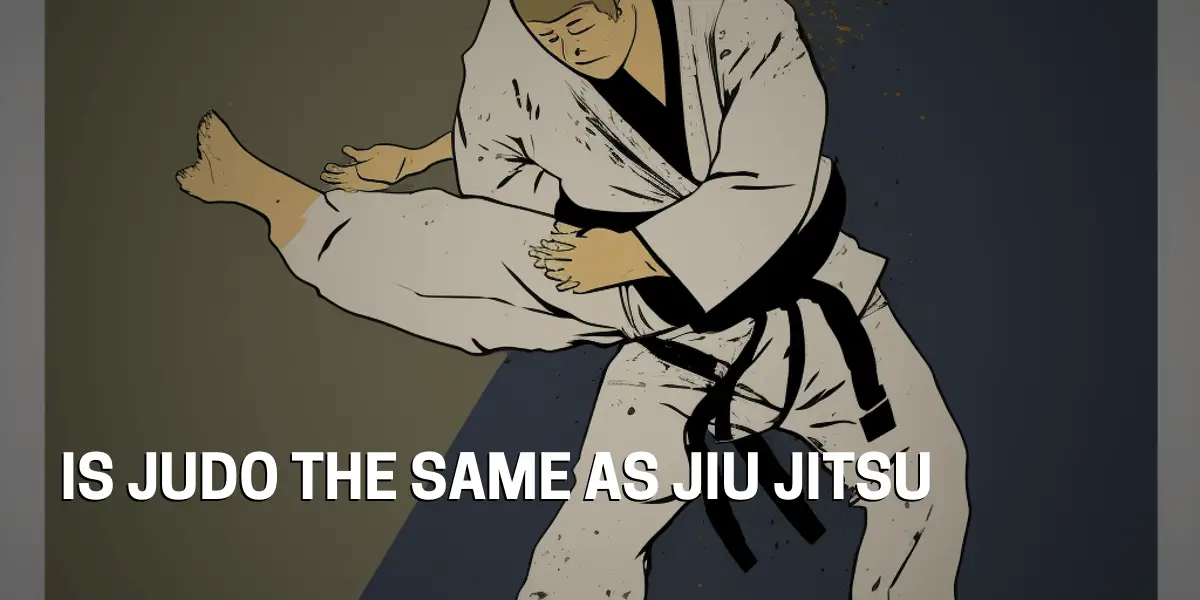Is Judo the Same as Jiu Jitsu?
Many martial arts enthusiasts have long asked the question: is Judo the same as Jiu Jitsu? To answer this question, it is important to understand the history and key differences between the two martial arts. How Judo and Jiu Jitsu originated, their main techniques, and why they can be beneficial to learn are all important factors to consider.
Judo is a Japanese martial art that was founded in the late 19th century by Kano Jigoro, who based the practice on traditional Jiu Jitsu. It is practiced in a dojo, or training hall, and is most commonly seen in competitions.
Jiu Jitsu is a combat sport that originated in Japan during the feudal era. It was developed to help Samurai warriors defend themselves in battle. It is practiced in a dojo and is commonly seen in tournaments and mixed martial arts competitions.
The main difference between Judo and Jiu Jitsu is that Judo focuses on throws and takedowns, while Jiu Jitsu focuses on grappling techniques. Despite their different techniques, both martial arts are used for self-defense and competition.
The benefits of practicing Judo and Jiu Jitsu are numerous. Both martial arts offer a full-body workout that can help improve physical strength and cardiovascular health. Additionally, learning these martial arts can help improve balance and coordination, as well as teach discipline and respect.

Historical Background
The Japanese art of Jiu Jitsu was developed from early forms, but there are notable differences between them. Judo was developed with a focus on sport and competition, while Jiu Jitsu focused on self-defense and combat.
Jigoro Kano, the founder of Judo, combined several traditional jujitsu forms into a modern version. Although Judo and Jiu Jitsu share many of the same techniques, they have different rules.
Major Differences
Though Judo and Jiu Jitsu share many of the same techniques, they have different rules and objectives. Judo primarily focuses on the use of throws and takedowns, while Jiu Jitsu puts emphasis on ground fighting and submission holds.
Judo is ideal for self-defense, while Jiu Jitsu is better suited for competition. Judo relies more on leverage and momentum, while Jiu Jitsu focuses more on technique and body positioning.
Judo has a more structured curriculum and rules, while Jiu Jitsu is more open-ended. Additionally, Judo requires a gi (uniform) to practice, while Jiu Jitsu can be practiced with or without a gi.
Training
While both martial arts share many of the same techniques, their training, focus, belt system, and philosophies have notable differences. Training in either martial art requires dedication and practice, as they are both complex and intricate.
Judo is a grappling and throwing martial art, while Jiu Jitsu is a ground-based grappling martial art. Judo focuses more on throwing and less on ground fighting, while Jiu Jitsu has a greater emphasis on ground fighting and submission holds.
Judo has a traditional ranking system with colored belts, while Jiu Jitsu also has a ranking system but with a different belt structure.
Judo is based on the principles of maximum efficiency and minimum effort, while Jiu Jitsu emphasizes leverage and control.
Judo has a strict rule set for competitive matches, while Jiu Jitsu does not have any rules and relies more on the skill and technique of the competitors.
Techniques
Many martial arts practitioners often wonder if Judo and Jiu Jitsu have common elements. The answer is yes, both martial arts involve a variety of techniques that overlap. In Judo and Jiu Jitsu, practitioners can use grappling techniques such as holds, throws, and joint locks, as well as chokes and submission techniques such as arm bars and leg locks. Both martial arts involve ground fighting techniques and throws are an important part of both. While Judo incorporates striking techniques such as punches and kicks, Jiu Jitsu does not.
The main difference between the two lies in their focus, training, belt system, and philosophies. Judo focuses more on throwing and less on ground fighting, while Jiu Jitsu has a greater emphasis on ground fighting and submission holds. Judo has a traditional ranking system with colored belts, while Jiu Jitsu also has a ranking system but with a different belt structure. Judo is based on the principles of maximum efficiency and minimum effort, while Jiu Jitsu emphasizes leverage and control.
Judo has a strict rule set for competitive matches, while Jiu Jitsu does not have any rules and relies more on the skill and technique of the competitors. Judo emphasizes safety and has a strict set of rules that must be followed, while Jiu Jitsu does not have any set rules and can be potentially dangerous if not properly practiced.

Scoring
In Judo, Ippon is the highest score that a competitor can achieve, indicating a win. The second highest score is Yuko, which indicates a near-win.
In Jiu Jitsu, Waza-ari is the highest score indicating a win, while Advantages are the second highest score denoting a near-win.
The lowest score in Judo is Shido, indicating a penalty, and in Jiu Jitsu, Penalties is the lowest score that signals a penalty.
Popularity
Judo has become an Olympic sport, resulting in a large global following. In recent years, Jiu Jitsu has grown in popularity due to its effectiveness in mixed martial arts competitions.
Judo is widely practiced in many countries, while Jiu Jitsu is more localized. Judo is generally regarded as a safer martial art than Jiu Jitsu, making it more popular among children and teenagers.
Judo tournaments are often held at local, national, and international levels. Judo is often seen as a more accessible martial art than Jiu Jitsu, as it is easier to learn and can be practiced with less gear.
On the other hand, Jiu Jitsu is often seen as a more technical martial art, so it is often more appealing to experienced martial artists.
Examples of Judo vs Jiu Jitsu
With martial arts becoming increasingly popular, many are wondering what the differences are between judo and jiu jitsu. While the two styles may appear similar, there are in fact key differences that set them apart. Why should someone choose judo over jiu jitsu, and vice versa? Let’s take a look at some of the primary differences between judo and jiu jitsu so you can make an informed decision.
Judo is a Japanese martial art that emphasizes the use of throws and strikes, while Jiu Jitsu is a Brazilian martial art that emphasizes the use of submissions and ground fighting. While both styles involve grappling and holding techniques, they differ in terms of the way they are applied. Judo focuses on throws and takedowns, while Jiu Jitsu focuses on grappling techniques. Judo utilizes a variety of techniques such as throwing, choking, joint locks, and pins to gain a dominant position, while Jiu Jitsu relies on submission holds, such as the arm lock and the triangle choke.
Judo emphasizes the use of momentum and balance to gain an advantage over the opponent, while Jiu Jitsu utilizes techniques such as joint locks and pressure points to gain a dominant position. Judo practitioners train to increase their physical strength, while Jiu Jitsu practitioners train to increase their mental and physical agility. Judo involves the use of kata, or pre-arranged forms, to practice specific techniques, while Jiu Jitsu focuses on live sparring and competition. Judo is considered a martial sport and is an Olympic event, while Jiu Jitsu is a martial art and is not an Olympic sport.
So why choose judo over jiu jitsu, or vice versa? Ultimately, the decision lies with the individual. Judo is widely practiced in many countries, while Jiu Jitsu is more localized. Judo is generally regarded as a safer martial art than Jiu Jitsu, making it more popular among children and teenagers. Judo tournaments are often held at local, national, and international levels, while Jiu Jitsu tournaments tend to be more localized. Judo is often seen as a more accessible martial art than Jiu Jitsu, as it is easier to learn and can be practiced with less gear.
On the other hand, Jiu Jitsu is often seen as a more technical martial art, so it is often more appealing to experienced martial artists. The choice is yours.
Karate vs Judo
In the world of martial arts, two popular styles stand out from the rest: judo and karate. Though these disciplines appear to be similar, they are in fact quite different. Judo is a Japanese martial art that focuses on throws and takedowns, while karate is a striking art that primarily relies on punches, kicks, and open hand techniques.
Judo practitioners focus on using leverage and technique to gain an advantage over the opponent, while karate practitioners hone physical strength and power. Judo is a team sport, while karate is an individual practice.
It’s clear that both martial arts have their own techniques, strategies, and philosophies, making them two distinct martial arts. For those looking to decide between judo and karate, it is important to consider the overall goals of the individual. Judo is widely practiced and is an Olympic event, while karate is more about self-defense and discipline.
Judo is generally seen as a safer martial art than karate, making it more popular among children and teenagers. Judo tournaments are held at the local, national, and international levels, while karate tournaments are more localized.
Judo is often seen as an easier martial art to learn due to its use of momentum and balance, while karate is more technical.
The choice is yours.

Aikido vs Jiu Jitsu
The martial arts of aikido and jiu jitsu are both popular and widely practiced. Not only do they provide an excellent form of physical exercise, but they also have spiritual and mental benefits as well. There are differences between the two, however, which are important to consider when choosing one over the other.
Aikido is a Japanese martial art which focuses on throws and locks, and is considered to be a softer and gentler form of martial arts. It emphasizes the idea of harmonizing with an opponent and using their energy against them.
Jiu jitsu is an art of Brazilian origin which focuses on grappling and ground fighting. It is designed to teach practitioners how to defend themselves against more powerful opponents.
When it comes to training, aikido is more suitable for those who are looking for a more spiritual and meditative experience, while jiu jitsu is better suited for those who are looking for a more physically demanding workout. Aikido is considered to be a safer form of martial arts, as it does not involve striking techniques like jiu jitsu does.
Jiu jitsu is seen as a more technical and complex martial art, and the techniques are often difficult to master. In terms of competition, jiu jitsu is more popular, as it is an Olympic sport. Aikido is more popular among children and teenagers, as it is seen as a safer form of martial arts.
Comparison Summary
Judo and Jiu Jitsu are two martial arts that involve physical contact between opponents. Judo emphasizes throws, while Jiu Jitsu focuses more on ground grappling. Judo is a more regulated form of combat, with specific rules and regulations.
Judo and Jiu Jitsu both require skill and technique to be successful. The techniques used in each martial art vary, with Judo relying more on throws and Jiu Jitsu focusing on ground grappling. The rules of Judo are more strictly enforced than those of Jiu Jitsu.
FAQs
What are the main differences between Judo and Jiu Jitsu?
When it comes to martial arts, Judo and Jiu Jitsu are often mentioned in the same breath. Though the two share similarities, there are some key differences that set them apart. Judo is a sport, emphasizing throws over groundwork, and focuses on using the opponent’s momentum and strength against them.
Jiu Jitsu, on the other hand, is a martial art that focuses on ground fighting, using leverage and technique to gain an advantage. Judo competitions are based on points and time limits, while Jiu Jitsu competitions are based on submissions.
Judo practitioners wear a gi, while Jiu Jitsu practitioners do not. Judo emphasizes good sportsmanship.

How does the scoring system differ between Judo and Jiu Jitsu?
It’s no secret that Judo and Jiu Jitsu have some similarities, but there are also some key differences that set them apart. For example, when it comes to scoring, Judo uses a point system to determine the winner of a match, while Jiu Jitsu uses a submission system.
In Judo, points are awarded for throws, holds, and pins based on the difficulty and control of the technique, while submissions in Jiu Jitsu are awarded based on the submission itself.
Furthermore, Judo scoring is done by a referee, while submissions in Jiu Jitsu are done by either a referee or a judge.
While Judo has a primary focus on throwing techniques, Jiu Jitsu is primarily focused on ground-based grappling techniques.
Is Judo more popular than Jiu Jitsu?
While both systems offer effective methods of self-defense, there are some key differences between them. Judo has been an Olympic sport since 1964, while Jiu Jitsu has only recently become a competitive sport.
Judo is often seen as more accessible than Jiu Jitsu due to the lower cost of entry, training and equipment. Judo is more widely known than Jiu Jitsu, and is therefore more likely to attract new participants.
Jiu Jitsu is more popular among MMA fighters, while Judo is more popular among traditional martial arts practitioners. Judo is often seen as a more practical self-defence system than Jiu Jitsu.
Judo is more popular in terms of participation, but Jiu Jitsu is often seen as the more sophisticated martial art.
How do Karate and Judo differ?
We’ve all heard of Karate and Judo, but what makes them different? Karate is a martial art that focuses on striking techniques such as punches and kicks, while Judo emphasizes throwing, joint locks, and pins. Karate focuses on individual attack and defense, whereas Judo is more of a cooperative practice.
Karate emphasizes linear power, whereas Judo relies on circular motion. Karate is considered a hard martial art and Judo is known as a soft one.
Karate is more well known for its focus on self-defense, while Judo is more geared towards sport competition. Karate is practiced in the standing position, while Judo is practiced on the ground.
So what makes Karate and Judo different? How do they both suit different needs and which one is right for you?
v. How do Aikido and Jiu Jitsu differ?
Aikido is a defensive martial art, emphasizing blending with an opponent’s movements and using throws and joint locks to subdue them. On the other hand, Jiu Jitsu is an offensive art, focusing on controlling and manipulating an opponent’s movements and using ground techniques to submit them.
Aikido focuses on circular movement, while Jiu Jitsu relies on linear power. Additionally, Aikido has a spiritual element, while Jiu Jitsu is more practical with a focus on self-defense.
Aikido involves a lot of flowing and redirecting of an opponent’s energy, while Jiu Jitsu involves using an opponent’s energy to gain an advantage.

